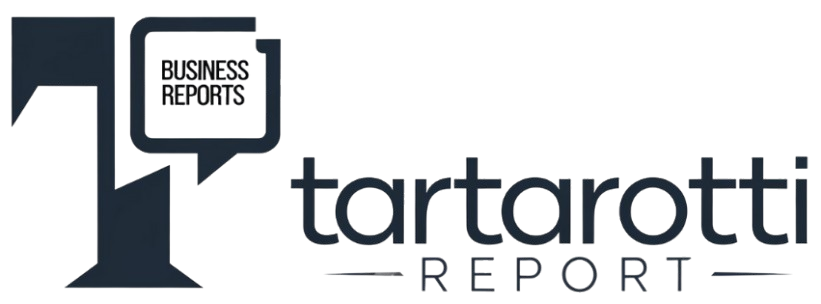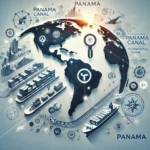Introduction:
In today’s globalized business landscape, the efficient structuring of international assets has become not only a competitive advantage, but a strategic necessity for companies and individuals looking to expand their operations across borders. Offshore holding companies have emerged as a powerful tool in this context, offering a range of benefits from tax optimization to asset protection.
Recent figures show that more than 60% of Fortune 500 companies use offshore structures in their global operations. This figure not only underscores the prevalence of these structures, but also raises important questions about their ethical and effective implementation in the contemporary business environment.
This guide has been meticulously crafted to turn complex concepts into actionable strategies. Whether you’re a visionary entrepreneur, an astute consultant, a shrewd lawyer or a meticulous accountant, our goal is to provide a clear roadmap for navigating the intricate world of offshore holding companies, with a special focus on the opportunities and challenges presented by the US market.
Part 1: Ready to Roll 🚀 – Basic Strategies and Practical Actions
Part 1, “Ready to Roll”, offers practical actions and immediate advice for entrepreneurs who need quick and effective guidance.

1. First Steps in the Universe of Offshore Holdings:
The journey into the world of offshore holding companies begins with a solid understanding of the fundamentals. Essentially, an offshore holding company is a company established in a jurisdiction other than the one in which it primarily operates, for the purpose of holding and managing assets or other companies.
To get started in this field:
- Define your objectives: Before any action is taken, it is crucial to clearly establish what you hope to achieve with an offshore structure. This could include asset protection, succession planning, tax optimization or facilitating international investments.
- Choose the right jurisdiction: Selecting the right jurisdiction is key. Factors to consider include political stability, tax regime, legal and banking infrastructure, and international agreements. Popular jurisdictions include Delaware in the US, the Cayman Islands, Singapore and Luxembourg, each with its own specific advantages.
- Understand the legal and tax implications: It is essential to have a basic understanding of the laws and regulations of both your chosen jurisdiction and your home country. This includes reporting obligations, transparency requirements and possible double taxation agreements.
- Assemble a team of experts: Given the complexity of the subject, it is highly recommended to work with experienced professionals, including lawyers specializing in international law, accountants with experience in offshore structures and tax consultants.
2. Develop Offshore Structuring Strategies:
When developing your offshore holding strategy, consider the following points:
- Corporate structure: Determine the best structure for your needs. This can range from a simple holding company to more complex structures involving multiple entities in different jurisdictions.
- Tax planning: While tax optimization is often a goal, it is crucial to adhere to international regulations, such as the OECD guidelines on BEPS (Base Erosion and Profit Shifting).
- Compliance and governance: Implement robust compliance and corporate governance systems. This not only helps maintain the legitimacy of your structure, but also protects against reputational risks.
- Exit strategy: Plan in advance how you will eventually divest or restructure your offshore assets.
- Adaptability: Keep your structure flexible enough to adapt to regulatory and market changes.
3. Creating and Maintaining a Solid Reputation:
Reputation is a crucial asset in the world of offshore structures. To build and maintain a solid reputation:
- Transparency: Adopt transparency practices in your offshore operations, adhering to international financial reporting standards.
- Business ethics: Maintain high ethical standards in all operations. This not only protects your reputation, but also helps avoid unnecessary scrutiny from regulators.
- Stakeholder engagement: Maintain clear and proactive communication with all stakeholders, including investors, business partners and, where applicable, regulatory authorities.
- Continuous monitoring: Be alert to changes in public and regulatory perceptions of offshore structures and adjust your practices as necessary.
- Social responsibility: Consider implementing corporate social responsibility initiatives to demonstrate your company’s commitment to ethical and sustainable business practices.
Part 2: Deep Dive 🤿 – Technical Deepening in Advanced Strategies
Part 2, “Deep Dive”, provides in-depth analysis for those who want to dive into the technical and complex aspects of international finance.

4. Detailed Analysis of Technical Aspects:
In this section, we’ll dive into the more complex technical aspects of offshore holding companies, with a special focus on the American context:
Advanced Corporate Structures:
- Limited Liability Companies (LLCs): Popular in the US, especially in Delaware, LLCs offer flexibility in structuring and management, as well as potential tax advantages. For example, an LLC can be treated as a “pass-through” entity for federal tax purposes, where profits and losses are “passed through” directly to the members.
- C and S Corporations: C Corporations are separate entities for tax purposes and offer greater protection from personal liability. S Corporations, on the other hand, offer the possibility of avoiding double taxation, but have restrictions on the number and type of shareholders.
- Limited Partnerships (LPs) and Limited Liability Partnerships (LLPs): These structures are often used in investment funds and offer different levels of involvement and responsibility for the partners.
Complex Tax Aspects:
- Controlled Foreign Corporations (CFCs): Understanding the CFC rules is crucial for U.S. companies with foreign subsidiaries. This includes understanding concepts such as Subpart F Income and GILTI (Global Intangible Low-Taxed Income).
- Transfer Pricing: Transfer pricing between related entities must be carefully structured to comply with IRS regulations and avoid tax adjustments.
- Tax Treaties: Knowledge of tax treaties between the US and other jurisdictions is essential to optimize the offshore structure. For example, the treaty between the US and the Netherlands offers significant benefits for certain investment structures.
Case Study: Successful Offshore Holding Structure
Consider the case of TechGlobal Inc., a US-based technology company that used an offshore holding structure to expand its international operations:
- Structure: TechGlobal Inc. established a holding company in Delaware, which in turn has a subsidiary in Singapore.
- Strategy: The Singapore subsidiary manages Asian operations and reinvests profits locally, taking advantage of Singapore’s tax incentives for technology companies.
- Results: This structure has allowed TechGlobal Inc. to expand efficiently in the Asian market, optimize its global tax burden and protect its intellectual property.
- Compliance: The company has maintained full compliance with FATCA and CRS regulations, as well as implementing robust internal controls to ensure transparency.
5. Implementation of Tools and Technologies:
In today’s world, technology plays a crucial role in the efficient management of complex offshore structures. Some essential tools and technologies include:
- International Financial Management Software: Platforms such as Oracle NetSuite or SAP Business One offer specific modules for managing multinational financial operations.
- Automated Compliance Solutions: Tools such as Thomson Reuters ONESOURCE or Sovos help maintain compliance with ever-changing global regulations.
- Document Management Platforms: Systems such as DocuSign or Adobe Sign facilitate the management and secure signing of international documents.
- Data Analysis and Business Intelligence: Tools such as Tableau or Power BI can help visualize and analyze complex financial data from multiple jurisdictions.
- Blockchain for Transparency: Some companies are exploring the use of blockchain technology to increase the transparency and traceability of international transactions.
To maximize the use of these tools:
- Invest in adequate training for your team.
- Integrate different systems to create a cohesive technological ecosystem.
- Keep up to date with the latest technological innovations in the field of international financial management.
6. Risk Management and Mitigation:
Risk management is a critical aspect of operating offshore holding companies. Some key risks and mitigation strategies include:
- Regulatory Risk:
- Strategy: Keep up to date with global and local regulatory changes.
- Action: Establish an internal compliance committee or hire specialized consulting.
- Reputational risk:
- Strategy: Adopt rigorous transparency and business ethics practices.
- Action: Develop and implement a robust code of corporate conduct.
- Fiscal Risk:
- Strategy: Ensure full compliance with the tax laws of all relevant jurisdictions.
- Action: Carry out regular tax audits and keep detailed documentation of all transactions.
- Foreign exchange risk:
- Strategy: Implement hedging strategies to protect against exchange rate fluctuations.
- Action: Use financial instruments such as futures contracts or currency options.
- Political Risk:
- Strategy: Diversify geographically to mitigate the impact of local political instabilities.
- Action: Develop contingency plans for political instability scenarios.
7. Avoiding Common Mistakes:
Some frequent mistakes in the management of offshore holding companies and how to avoid them:
- Lack of Economic Substance:
- Mistake: Establishing offshore structures without real economic activity.
- Prevention: Ensure that each offshore entity has a legitimate and documented business purpose.
- Documentation negligence:
- Mistake: Keeping incomplete or inaccurate records.
- Prevention: Implement robust record-keeping systems and carry out regular audits.
- Disregard for Local Regulations:
- Mistake: Focusing only on the laws of the offshore jurisdiction, ignoring home country requirements.
- Prevention: Stay informed about the laws and regulations of all relevant jurisdictions.
- Excessively complex structures:
- Mistake: Creating unnecessarily complex structures that are difficult to manage.
- Prevention: Opt for simplicity and clarity in structuring, ensuring that each entity has a clear purpose.
- Lack of adaptability:
- Mistake: Maintaining rigid structures that do not adapt to regulatory or market changes.
- Prevention: Regularly review and update your offshore structure to ensure that it remains effective and compliant.
Conclusion
The world of offshore holding companies offers significant opportunities for companies and individuals looking to optimize their global operations. However, navigating this complex environment requires specialized knowledge, constant due diligence and an ethical approach.
By implementing the strategies and practices discussed in this guide, you will be well placed to reap the benefits of offshore structures, while remaining compliant with international regulations and protecting your business’s reputation.
Remember, success in the offshore arena is not just about tax optimization or asset protection; it’s about creating a robust and ethical structure that supports your long-term global business objectives.
To further deepen your knowledge in this crucial area, I invite you to take part in our next exclusive webinar: “Masterclass in Offshore Structuring: Advanced Strategies for the Global Market”. In this event, we will discuss detailed case studies and offer practical insights from industry experts. Sign up now and take the next step in optimizing your global presence!
FAQs
- Q: What are the main benefits of establishing an offshore holding company? A: The main benefits include tax optimization, asset protection, facilitation of international investments and flexibility in corporate structuring.
- Q: How do I choose the best jurisdiction for an offshore holding company? A: The choice of jurisdiction depends on several factors, including your specific objectives, tax regime, political stability, legal and banking infrastructure, and international agreements. It is advisable to consult a specialist to assess the best option for your specific case.
- Q: What are the legal risks associated with offshore holding companies? A: The main risks include non-compliance with international regulations, transparency issues, and potential tax evasion charges. It is crucial to remain compliant with all relevant laws and to work with qualified professionals.
- Q: How are offshore holding companies affected by global transparency initiatives such as CRS and FATCA? A: These initiatives have significantly increased the reporting and transparency requirements for offshore structures. Companies need to be prepared to disclose relevant financial information to the relevant authorities and keep detailed records of all transactions.
- Q: What are the tax implications of an offshore holding company for a Brazilian company? A: The tax implications can be complex and depend on the specific structure. In general, Brazilian companies need to be aware of the rules for taxing profits abroad, such as the taxation of profits from Controlled Foreign Corporations (CFCs). It is essential to consult a specialist in international taxation in order to structure the holding company correctly and avoid problems with the Brazilian Internal Revenue Service.
- Q: How do you ensure that an offshore structure is considered legitimate by the tax authorities? A: To ensure legitimacy, it is essential that the structure has real economic substance, a genuine commercial purpose, and is in full compliance with the laws and regulations of all the jurisdictions involved. Keep detailed documentation, carry out transactions at arm’s length and be prepared to justify the structure if questioned.
- Q: What are the future trends regarding offshore holding companies? A: Current trends point to greater transparency, increased automatic exchange of information between countries, and a growing focus on economic substance. An increase in the use of blockchain technology for transaction traceability and stricter scrutiny of purely tax planning structures are also expected.
- Q: How can startups benefit from offshore structures? A: Startups can use offshore structures to facilitate international investments, protect intellectual property, and create a global presence from the outset. However, it is crucial to balance the benefits with the costs of compliance and maintaining the structure.
- Q: What are the typical costs associated with maintaining an offshore holding company? A: Costs can include annual registration and renewal fees, local directors’ expenses, accounting and auditing costs, bank account maintenance fees, and legal and tax advisors’ fees. These costs vary significantly depending on the jurisdiction and the complexity of the structure.
- Q: How can offshore holding companies be used for succession planning? A: Offshore holding companies can be effective tools for succession planning, allowing the efficient transfer of assets between generations, potentially reducing inheritance taxes and providing protection against family disputes. Structures such as offshore trusts are often used in this context.
Additional Considerations for Entrepreneurs and Consultants
When navigating the world of offshore holding companies, it is crucial to keep up to date with the latest trends and regulations. Here are some additional considerations for entrepreneurs and consultants:
- Evolution of International Legislation: Legisl ation governing offshore structures is constantly evolving. For example, the OECD’s implementation of BEPS (Base Erosion and Profit Shifting) has significantly impacted international tax planning strategies. Keep an eye out for new guidelines and adjust your structures as necessary.
- Importance of Digitization: With the increasing complexity of global operations, the digitization of management and compliance processes has become essential. Invest in robust information management systems that can integrate data from multiple jurisdictions and provide real-time reporting.
- Growing scrutiny of “Substance Over Form”: Tax authorities are increasingly focusing on the economic substance of offshore structures. This means that it is not enough to have a nominal presence in a low-tax jurisdiction; it is necessary to demonstrate real economic activity and significant physical presence.
- Impact of Cryptocurrencies: The emergence of cryptocurrencies and digital assets adds a new layer of complexity to offshore planning. Be aware of emerging regulations in this area and consider how these assets can be incorporated into offshore structures in a compliant manner.
- Corporate Social Responsibility (CSR): There is a growing expectation that companies, including those with offshore structures, demonstrate a commitment to ethical and sustainable business practices. Consider how your offshore structure can align with CSR principles and contribute positively to the communities where it operates.
- Cyber Risk Management: With the increase in cyber threats, the protection of sensitive data in offshore structures has become crucial. Implement robust cyber security measures and have contingency plans in place to deal with potential data breaches.
- Flexibility and Adaptability: The global business environment is constantly changing. Design your offshore structure with enough flexibility to adapt to regulatory, economic and geopolitical changes.
Advanced Strategies for Optimizing Offshore Structures
For those who already have experience with offshore holdings and are looking for more advanced strategies, consider the following:
- Hybrid Structures: Combine different types of entities and jurisdictions to create a structure that maximizes tax and operational benefits. For example, a structure that utilizes a holding company in Delaware, an operating subsidiary in Singapore and a trust in the Cayman Islands can offer an ideal combination of asset protection, tax efficiency and operational flexibility.
- Use of Tax Treaties: Explore structuring opportunities that take advantage of bilateral tax treaties. For example, using a Dutch holding company can provide access to an extensive network of favorable tax treaties.
- IP Holding Strategies: Consider establishing a specific entity to hold and manage intellectual property in jurisdictions with favorable tax regimes for IP income, such as the “Patent Box” in the UK or the IP regime in Luxembourg.
- International Financing Structures: Develop financing strategies that optimize the group’s capital structure, using hybrid instruments and intra-group loans in a tax-efficient manner.
- Exit Planning: When structuring offshore holding companies, think beyond the initial phase and consider exit strategies. This can include planning for eventual IPOs, mergers and acquisitions, or intergenerational transfers.
The Role of the Consultant in the Modern Offshore Scenario
As a consultant specializing in offshore structures, your role goes beyond simply establishing entities in low-tax jurisdictions. You must be a strategist, a risk manager and an ethical guardian. Some key responsibilities include:
- Ongoing Client Education: Keep your clients informed of the latest regulatory changes and best practices in the offshore arena.
- Rigorous Due Diligence: Implement robust due diligence processes to ensure that offshore structures are used ethically and legally.
- Strategic Innovation: Stay ahead of the curve by seeking out new jurisdictions, structures and strategies that can benefit your clients in a compliant manner.
- Reputation Management: Help your clients understand the importance of public perception and manage the reputational risks associated with offshore structures.
- Multidisciplinary Collaboration: Work closely with lawyers, accountants and other experts to provide comprehensive and well-founded solutions.
Final Conclusion
The world of offshore holding companies is complex, dynamic and full of opportunities for those who navigate it wisely and ethically. As the global regulatory landscape continues to evolve, the key to success lies in adaptability, strict compliance and the constant search for up-to-date knowledge.
Remember, a successful offshore structure is not only one that offers immediate tax benefits, but also one that provides a solid foundation for long-term sustainable growth, in line with global corporate governance best practices.
By implementing the strategies and considerations discussed in this guide, you will be well placed to take advantage of offshore structures while remaining compliant with the regulatory and ethical expectations of the modern global business environment.
Continue to educate yourself, keep up to date with regulatory changes and don’t hesitate to seek expert advice when necessary. The offshore world is full of nuances, and the right expertise can make all the difference between a successful structure and one that poses unnecessary risks.
Remember, the ultimate goal is not just to optimize your corporate structure, but to do so in a way that supports your long-term business objectives, protects your assets and keeps your reputation intact in the increasingly interconnected and transparent global landscape.

Member of the IMA (Institute of Management Accountants) – USA
Member of the AICPA (American Institute of CPAs) – USA
Member of AAII (American Association of Individual Investors) – USA
Member of AAA (American Accounting Association) – USA
Member of the FMA (Financial Management Association) – USA
These associations not only attest to Kleyton’s commitment to professional excellence, but also ensure that his knowledge is always at the forefront of international financial and accounting practices.
With a robust academic background, including a Bachelor’s degree in Accounting and MBAs in International Finance and Accounting, as well as in International Business, Kleyton offers a unique and comprehensive perspective on the global business landscape.
Through the Tartarotti Report, Kleyton invites visionary entrepreneurs and executives to connect, explore opportunities for collaboration and, together, successfully navigate the complex world of international corporate finance.







